Canadian stocks, or those listed on the TSX, have lagged the overall market in the past few years. So why on earth would I sacrifice potential growth by purchasing a bunch of defensive Canadian stocks? The pandemic has dealt the economy a severe blow in many sectors. Yet, the stock market has displayed a remarkable ability to detach itself in relation to how it reflects the real economy.
Stocks tend to do this at times and stock prices don’t always align with actual values or rationale. This also begs the question of how long such a run can continue? Are specific names in the tech sector and commodity spaces now overvalued? Somewhat of a conundrum makes itself apparent. We don’t want to be left behind in regards to returns, yet our senses may be telling us something is amiss and urging us to be cautious in such an environment.
The thing about COVID-19 is that it has left us with a lot of questions. Is the current uptrend in stocks and other equities sustainable? Do we pull out some cash and potentially miss out on participating in large gains upon the economy fully re-opening and a possible extended bull-market?
My leanings are now towards rotating out of some higher-performing stocks and into other, less cyclical and less growth-oriented names – companies in which you’ll notice a few patterns.
One, they’re Canadian stocks.
Two, they all pay dividends.
Three, these stocks are highly defensive.
I’m currently interested in large-cap companies that have decent competitive moats and that are in my opinion, extremely well-suited to provide stability to my portfolio if a crash or recession is to occur.
My reasoning is simple. Valuations (at least in my estimation) are now teetering on the high side, in many cases with no real fundamentals behind them. It’s difficult to find deep value plays and many growth stocks have seen large inflows of money recently, resulting in some crazy multiples when compared to historical norms.
I prefer to stay invested and not have my money become a victim to high inflation. At the same time, I want my risk exposure to be minimal, as currently, there is a real disconnect in valuations compared to real economic conditions.
Here are five defensive Canadian stocks I’m buying in 2021.
Canadian National Railway
CNR.TO (SP/$140.49 – Yield 1.75%)
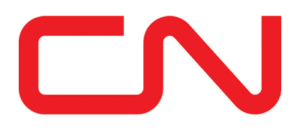
A highly defensive stock with a wide-moat from competition, CN Rail offers investors steady and consistent growth with its rail lines and logistics operations network.
CN’s unmatched reach throughout North America enables them to efficiently move petrochemicals, agricultural necessities, forestry products and more. It has now been 25 years since CN Rail went from a crown corporation to being privatized, and the company has expanded its’ reach ever since.
Rail lines are critical infrastructure, have limited competition and high barriers to entry (it’s not like folks are getting into the business of building new rail lines). It’s pretty safe to assume CN will continue to grow and supply freight services to companies throughout North America well into the future.
CN Rail pays a fair dividend currently at 1.75%, an it’s well-covered with a roughly 47% payout ratio.
Alimentation Couche-Tard
ATD-B.TO – (SP/$39.82 – Yield 0.88%)
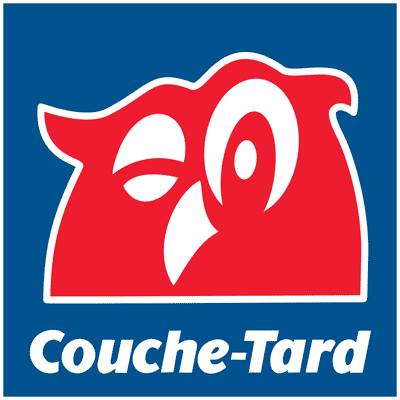
An interesting thing about Alimentation Couche-Tard is that they advertise themselves as selling “time” to their customers through convenience. 80% of the consumption of products and services at Couche-Tard stores happens within 1 hour of purchase. They serve 9 Million customers daily with food, coffee, car washes, fuel and merchandise. Combine this with strategic store locations and reasonable proximity to customers, and it translates to high recurring revenue.
Couche-Tard also has the capacity for future growth as they can acquire existing stores and brands and have experience realizing synergies throughout the business. One concern people may have with Alimentation Couche-Tard as a long-term investment is potentially lower fuel sales going forward due to COVID-19 and, more so, the adoption of electric cars. It would likely be foolish to assume this hasn’t been taken into account by the management team or that they haven’t already explored plans to adapt to this changing landscape. In addition, a lesser-known fact is that while Couche-Tard derives almost half of its revenue from fuel sales, its highest profit margin business is actually in food and convenience sales.
My opinion is that they are well-positioned for future growth. Alimentation Couche-Tard should continue to do well even during uncertain times due to their well-established brands, locational advantages and convenience factor. Couche-Tard pays a small dividend but will likely have a better growth profile than other stocks mentioned in this article.
Fortis
FTS.TO (SP/$51.50 – Yield 3.92%)

Fortis benefits primarily from being in a highly regulated space, supplying utilities such as electricity and natural gas. Government contracts and fixed-rate agreements contribute to the predictable revenue stream and income. Fortis is also very well-diversified across the continent, operating throughout Canada and in the United States and the Caribbean.
Some assets may be of concern to ESG investors. Still, Fortis has outlined their plans to reduce exposure to fossil fuels such as coal. Over time, the goal is to replace the majority of the more controversial (or environmentally harmful) power sources with more sustainable development projects such as renewables.
While the growth profile is not what it might be in other sectors, there is less downside potential in this name, and it’s a stock you likely won’t lose any sleep over.
Telus
T.TO (SP/$26.68 – Yield %4.67)
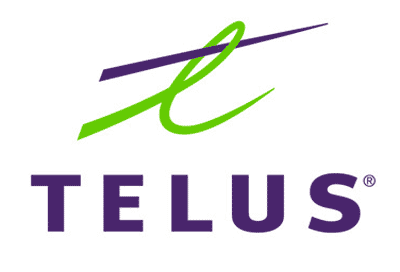
The stock, in my estimation, is currently not expensive when considering value metrics. Telus will also very likely continue growing its’ dividend annually, which is already a healthy 4.67% yield. A strong management team with a reputation and focus on increasing shareholder value should continue to drive this business.
Telus is situated well competition-wise since the wireless space in Canada is an oligopoly. There are minimal rivals aside from the other two major service providers. The business is fairly recession-proof as people will not likely be ditching their smartphones anytime soon. The wireless devices have almost become an additional appendage for many customers that they can’t live without.
The industry as a whole does face a few hurdles, for example, the burden of large CapEx requirements on infrastructure spending. There is also the ongoing threat of potential government intervention in relation to pricing regulation and caps on specific billed services.
Regardless, I am confident Telus will continue to grow the bottom line and fare well in the current market environment or a potential downturn.
Loblaw Companies
L.TO (SP/$62.58 – Yield %2.14)
People always need groceries, so what better defensive name to invest in than Loblaws. Currently, Loblaws stock is at a pretty attractive valuation. After hitting highs during the pandemic, the stock price has fallen back a bit, likely due to increased expenses over the last couple of quarters. While the grocers have been busy during COVID-19, they have also incurred additional costs from higher employee wages and personal protective equipment purchases.
Loblaws operates supermarkets under numerous banners, including Real Canadian Superstore, Atlantic Superstore, Valu-mart, Zehrs, Wholesale Club, No Frills and more. They also acquired Shoppers Drug Mart, which allowed them to realize synergies such as a merged points program (PC Optimum) and share well-known brands/product lines between the stores.
It is also possible that Shoppers Drug Mart may benefit from the COVID-19 vaccine rollout, as pharmacies are offering to assist the vaccination effort. Being a familiar brand and well-situated geographically throughout the country, what better franchise to be involved with this initiative.
Even with the challenges of the pandemic and adapting to newer services like grocery pickup and online ordering, the fact is, this is still an essential business. Margins may not be great in this industry, but Loblaws is the largest grocer in Canada and has only two real competitors in Metro and Empire.
The dividend yield is reasonable at just over 2% currently, and the company will likely continue to grow organically and through acquisition in the future. In my opinion, Loblaws is a safe holding that will continue to see growth and remains at an attractive valuation today.
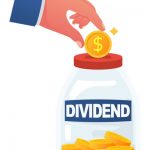
What are your favourite stocks to buy in 2021? Let me know in the comments section below!
Note: Prices & Yields are approximate as of February 12, 2021 and may be used for comparison purposes at a future date.
Disclosure – At the time of writing this article, I am/we are long CNR.TO, ATD-B.TO, T.TO, L.TO. I wrote this article myself, and it expresses my own opinions. I am not receiving compensation for it and have no business relationship with any company whose stock is mentioned in this article.



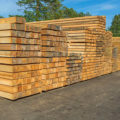


Canoe income fund.
Apple
Fortis
Good picks, I don’t own Canoe but am a fan of Rafi’s insights.